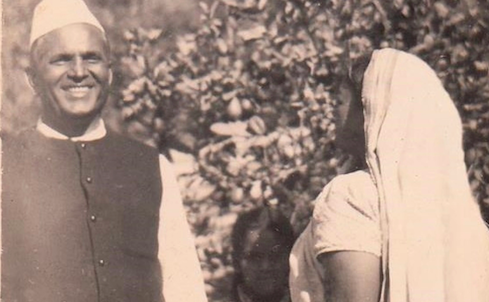
If the name ‘Subhadra Kumari Chauhan’ doesn’t ring a bell, how about something she wrote? ‘Khoob ladi mardani, vo to Jhansiwali rani thi’ (She fought valiantly like a man, the Queen of Jhansi). Most of us learnt the poem that contains these immortal lines in school but what we weren’t taught is that the woman who penned this powerful poetic tribute was no less valiant than the Queen of Jhansi herself, and that she too dedicated her life to the cause of India’s freedom.
The poem, titled Jhansi Ki Rani, is among Subhadra’s most famous works but let us meet the woman who wrote it and who went on to become one of India’s most fearless freedom fighters.
Subhadra was born into a conservative zamindar (landlord) family, in Nihalpur village, Allahabad district, Uttar Pradesh, on August 16, 1904. She harboured a rebellious streak from an early age and although her family practiced chhooa-chhooi (a euphemism for the practice of ‘untouchability’), she insisted on helping the domestic staff with their chores and would chastise her mother for discriminating against their lower-caste neighbours.
Although her father was a patriarchal disciplinarian and the women of the house had to wear ghoonghats (head covers), he was also passionate about education and made sure that all his children were well educated.
Subhadra studied in Crossthwaite Girls’ School in Allahabad, where she was a few years senior to another great Hindi poet, Mahadevi Varma. In fact, it was Subhadra who noticed and encouraged Mahadevi’s poetic abilities – together they would write poems in between classes, thus setting the tone for a life-long friendship.
Incredibly, Subhadra’s first poem was published when she was just nine years old. So compelled was she to write that she even penned verse in the ikka (horse cart) on her way to school! She gained recognition when her work was published in Kavita Kaumudi, a collection of works by established poets. She wrote in the Khariboli dialect of Hindi, in a simple and intimate style that instantly connected with her readers.
Subhadra passed her middle school examinations at the age of 15 and was married the same year to Lakshman Singh Chauhan, who lived in Jabalpur. Although her husband was also from a conservative family, he was actively involved in the freedom struggle, much to the family’s dismay. He was also part of the social reform movements of the time, such as the campaign to abolish the purdah or ghoonghat for women as well as the dowry system, and it was with his encouragement that Subhadra gave up her ghoonghat after marriage. The couple stuck to their principles even though they were ostracized by sections of the family.
In 1921, the Chauhans joined Mahatma Gandhi’s Non-Cooperation Movement and, in 1923, they emerged in frontline leadership roles in Jabalpur during the Jhanda Satyagraha (Flag Satyagraha), during which nationalist flags were hoisted across the country to challenge the legitimacy of British rule.
In 1923, the gritty and budding revolutionary was arrested and sent to the Nagpur jail before being released in a few months on account of her pregnancy. Fortunately, she was able to deliver her first child, Sudha, at home in Jabalpur. Throughout the 1930s, Subhadra presided over the women’s section of the state Congress Committee of Madhya Pradesh, and in 1936, she was elected to the Bihar Legislative Assembly.
Through these turbulent times, she managed to write 88 poems and 46 short stories, using the pen as a weapon against social injustices such as caste, gender and class discrimination. Her most famous collection of poems is Mukul (1930), which contains her immortal Jhansi Ki Rani. She also wrote children’s poems, several of which are just as popular today. Her home was frequented by poets and writers, and regular visitors included towering Hindi literary personalities such as poet Muktibodh and novelist Jainendra Kumar.
The year 1942 brought the Quit India Movement and, with it, Lakshman Chauhan’s arrest. Subhadra continued to be just as involved in the freedom struggle despite advice from well-wishers to withdraw as her arrest w
